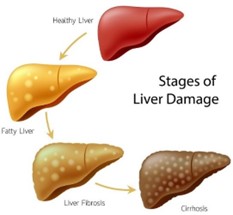A client with chemotherapy induced nausea receives a prescription for metoclopramide. Which adverse effect is most important for the nurse to report?
Unusual irritability.
Diarrhea
Nausea
Involuntary movements.
The Correct Answer is D
Metoclopramide is a medication used to treat nausea and vomiting, including those caused by chemotherapy. However, it has a potential adverse effect of causing extrapyramidal symptoms (EPS), which are involuntary movements of the body, such as muscle spasms, twitching, or restlessness. These symptoms can be distressing for patients and can interfere with their quality of life. EPS can be a sign of tardive dyskinesia, a serious and irreversible neurological disorder.
Therefore, it is essential for the nurse to monitor the client for any signs of EPS and report them immediately to the healthcare provider to prevent further complications. Unusual irritability, diarrhea, and nausea are also potential adverse effects of metoclopramide, but they are not as concerning as EPS.

Nursing Test Bank
Naxlex Comprehensive Predictor Exams
Related Questions
Correct Answer is A
Explanation
The nurse should explain to the client's daughter that Rivastigmine is most effective when used early during Alzheimer's disease. Delaying the use of the medication until the symptoms are no longer manageable may result in the drug being less effective.
The nurse should emphasize the importance of following the healthcare provider's instructions for administering the medication to maximize its therapeutic effect. It is important to educate the client's daughter about the progressive nature of Alzheimer's disease and the need for ongoing monitoring and care.

Correct Answer is A
Explanation
Terbinafine HCL is primarily metabolized by the liver, and a history of alcoholism may indicate liver dysfunction or damage, which could affect the metabolism and clearance of the drug. The nurse should assess the client's liver function, including liver enzymes, bilirubin levels, and albumin levels, before administering terbinafine HCL.
While options b, c, and d may be important assessment findings, they are not as crucial as a history of alcoholism when it comes to administering terbinafine HCL.
The thick and yellow toenails (option b) are typical symptoms of a fungal toenail infection, which is the reason for prescribing terbinafine HCL.
The white blood cell count (option c) is within normal range.
Being employed as a construction worker (option d) does not have a direct impact on the use of terbinafine HCL.

Whether you are a student looking to ace your exams or a practicing nurse seeking to enhance your expertise , our nursing education contents will empower you with the confidence and competence to make a difference in the lives of patients and become a respected leader in the healthcare field.
Visit Naxlex, invest in your future and unlock endless possibilities with our unparalleled nursing education contents today
Report Wrong Answer on the Current Question
Do you disagree with the answer? If yes, what is your expected answer? Explain.
Kindly be descriptive with the issue you are facing.
